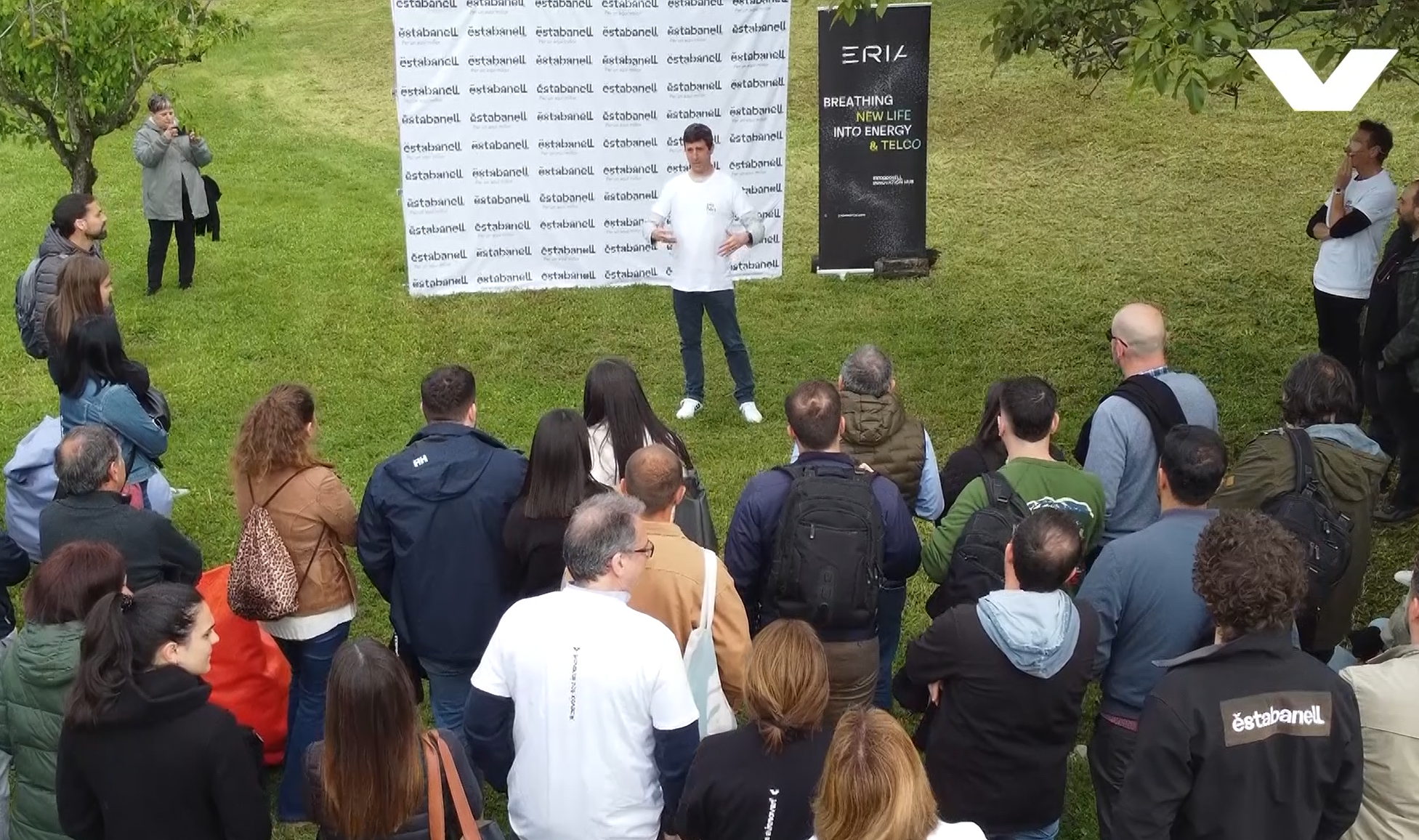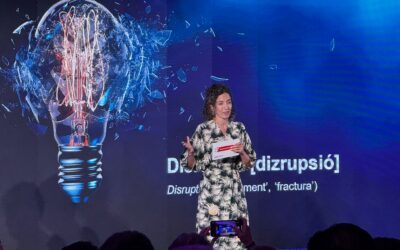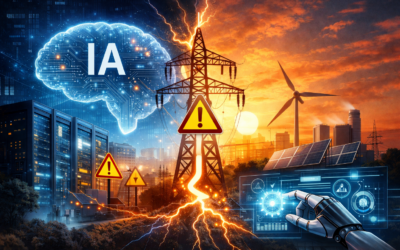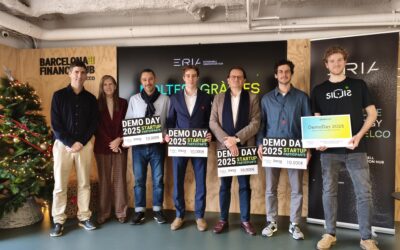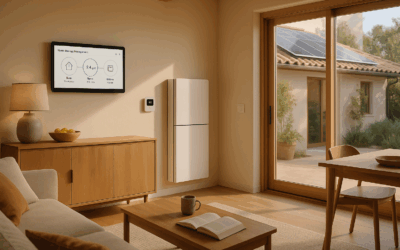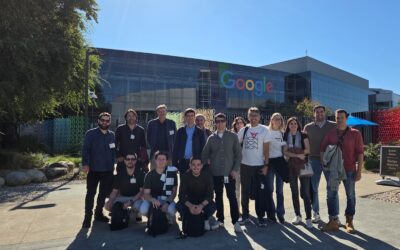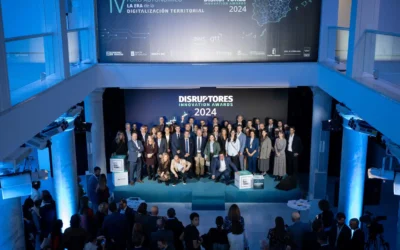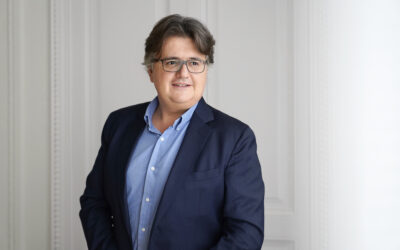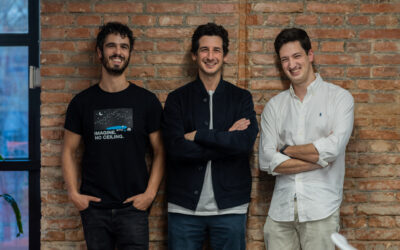Sometimes, great revolutions do not start with a product or a technology, but with an attitude. With the will to look to the future with curiosity and courage, to dare to experiment, even if the path is not always easy. At Estabanell, this conviction has materialized in Pioners2150, an intrapreneurship program that has mobilized dozens of people within the company and has awakened a wave of creativity, collaboration and shared learning.
Looking 125 years ahead
The name of the program is no coincidence. This year, Estabanell celebrates its 125th anniversary, and the initiative seeks to look forward another 125 years: to the year 2150. “We wanted to look far ahead, to reclaim our pioneering spirit,” explains Daniel Iniesta, the company’s director of organizational development. “Just as our predecessors knew how to transform a textile factory into an electric company, today we want to continue transforming ourselves and be pioneers of change.”
With this vision, and through ERIA, Estabanell’s Corporate Venturing vehicle that channels its entrepreneurship programs, Pioners2150 was born: a program designed to activate internal talent, encourage creativity and detect ideas with the potential to become real and innovative projects.
An open call for internal talent
The first surprise came with the response. Of the more than 300 people who are part of the Estabanell group, 53 voluntarily signed up for the program. “Making an open call, in which any employee could participate and get out of their daily routine, was already a small revolution,” says Iniesta. “And the fact that almost 18% of the workforce was encouraged to participate was a huge success.
From that first call, 15 multidisciplinary teams emerged, made up of people from different areas, who joined forces to tackle three major challenges: promoting the circular economy and reducing waste, designing new energy and wellness services in the home, and improving internal knowledge management.
The program kicked off with a day of creativity in the historic Centelles space – a former textile factory in Estabanell converted (for a day) into an innovation center – guided by Imagine Creativity Center’s Lombard methodology, with Xavier Verdaguer and the SDLI team. “More than 200 ideas and a contagious atmosphere of enthusiasm came out of that day,” says the director of organizational development.
From idea to prototype: entrepreneurship from within
Of the 15 initial teams, 10 moved on to the next phase, where they continued to mature their proposals under pressure, with tight deadlines and intensive work sessions. “It was an intense experience, of accelerated learning and community,” recalls Iniesta. “There were moments of crisis, of doubt, but also of discovery. People helped each other, encouraged each other, learned to work with colleagues from other areas. All of that generated incredible commitment and motivation.”
In this phase, each team dedicated at least five hours a week to its project, with time and resources provided by the company. Because, as Iniesta stresses, “if you ask people to innovate, you also have to give them space to do so”.
Finally, only two finalist projects passed to the prototyping and validation stage: Elektra and Sil-lis.
Elektra: democratizing knowledge
The Elektra team set out to solve one of the most complex challenges: how to share and preserve knowledge within the organization. Their proposal combines technology and collaborative culture: an application that allows you to easily consult, contribute and access the expertise of other colleagues.
“Many times knowledge gets lost among emails or folders,” explains Ena Alvarez, spokesperson for the Elektra project. “We wanted to create a place where anyone could ask a question and find an answer based on real company experience. A system that grows over time, because every contribution adds value.”
Beyond the idea, what has transformed Ena was the experience. “I have changed my way of thinking. Before I was very rigid, I thought there was only one right way to do things. This project has taught me that there are a thousand different ways, and trying others opens your mind. It has even helped me to relax and trust others more.”
Sil-lis: avoiding waste by design
The other finalist team, Sil-lis, focused its challenge on the circular economy. From the installation company Relsa, they detected that many times surplus or custom-made materials are wasted. Their solution: using artificial intelligence and 3D modeling to optimize the design and reduce errors before reaching the construction site.
“We wanted to attack the problem at the source,” explains Jordi Granès, spokesman for the project. “If we manage to automate part of the design and avoid human error, we save materials, time and costs. And we also free up the technicians to concentrate on what really adds value.”
The project has, according to Jordi, a huge potential for transformation: “Digitizing spaces and applying AI can change the way facilities are conceived. And the most valuable thing has been learning to co-create with colleagues from different areas. That breaks down barriers and gives you a more complete vision of the company.”
A school of innovation and humanity
Pioners2150 has not only generated innovative ideas; it has created innovative people. “The impact on motivation and commitment has been extremely high,” says Iniesta. “People have experienced something that goes beyond the result: they have learned new methodologies, have lost their fear of error, and have strengthened competencies such as collaboration, trust and generosity.”
The phrase “mistakes don’t penalize, they create learning” has become almost a motto of the program. “In traditional culture, making a mistake is seen as a failure,” Iniesta reflects. “But in innovation, error is part of the process. It teaches you where not to go. In our intrapreneurship program, every attempt, even if it doesn’t turn out perfectly, leaves a learning footprint that the organization can take advantage of.”
An initiative with continuity
The program culminated on October 15 with a Demoday, where the two teams presented their projects and the results achieved before a jury formed by members of Estabanell and the entrepreneurial ecosystem. The decision was not easy: both demonstrated enormous potential and great maturity in their proposals. Finally, the Sil-lis team emerged as the winner and will travel to Silicon Valley to get a close look at one of the most inspiring innovation ecosystems in the world. The Elektra team, finalist, will represent Estabanell at the Web Summit in Lisbon, one of the most important international fairs in technology and entrepreneurship.
But, beyond the prizes, the important thing is the seed planted. Estabanell is already preparing new editions of Pioners2150. “It cannot remain a one-time experience,” says Iniesta. “We want this way of thinking and acting to be part of the company’s daily life. We want people to continue to challenge, collaborate and learn”.
Through ERIA, Estabanell will continue to foster this entrepreneurial culture and give continuity to programs that encourage creativity and internal collaboration. This is the true purpose of Pioners2150: the constant evolution of Estabanell so that, in the year 2150, it will be a living ecosystem of knowledge, creativity and pioneering people.
